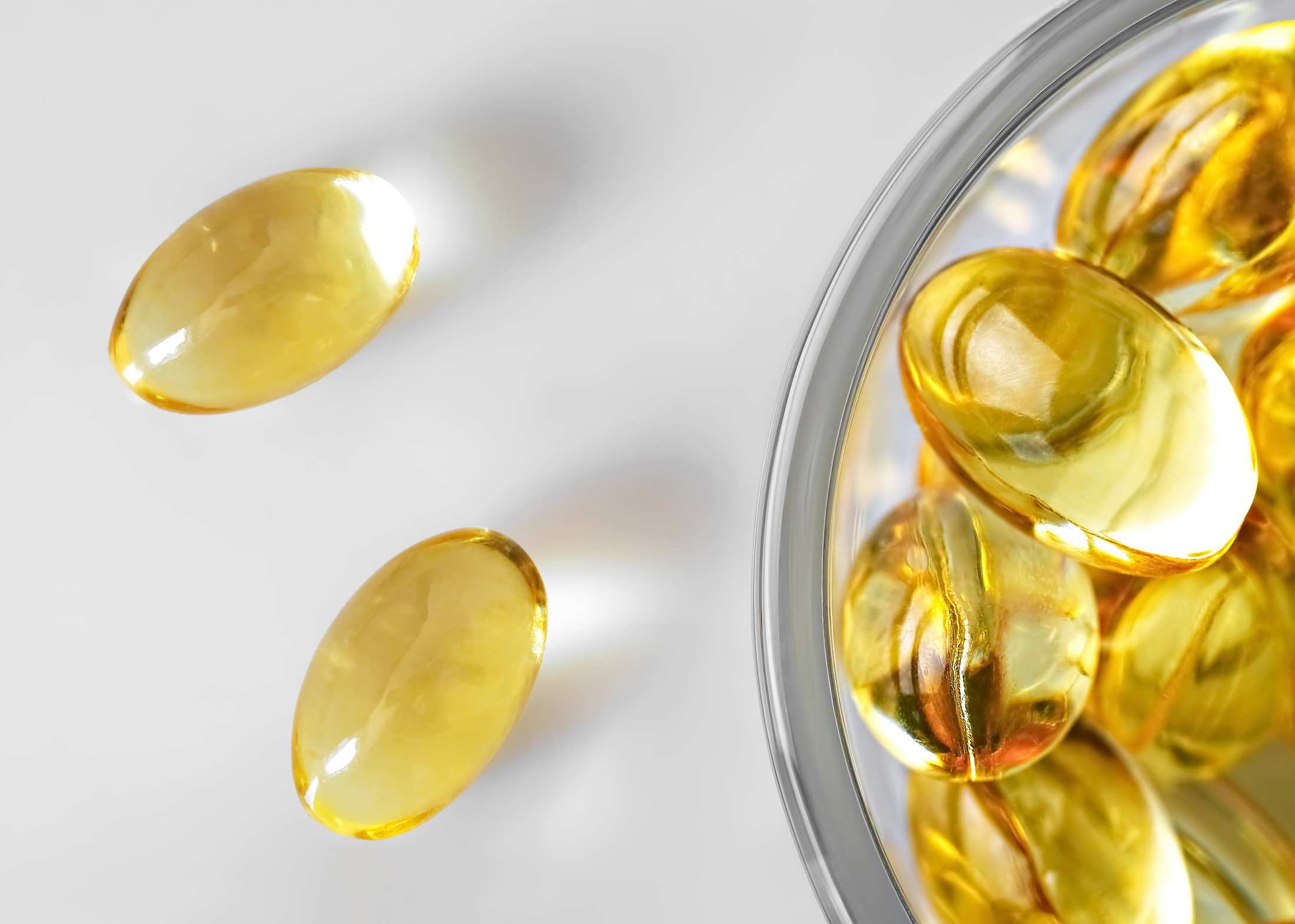If your diet doesn’t provide sufficient omega-3s from fatty fish, you might opt for a supplement to obtain these essential fats. Supplements are available in several types, such as fish oil and algal oil.
Omega-3 fatty acids play a vital role in overall health and help support key bodily functions, including brain function.
There are three main types of omega-3 fatty acids:
- eicosapentaenoic acid (EPA)
- docosahexaenoic acid (DHA)
- alpha-linolenic acid (ALA)
The ideal way to meet your needs is to consume whole foods rich in omega-3s, particularly fatty fish. But if you rarely eat these fish, supplementation can help bridge the gap.
Although multiple omega-3 supplements exist, their health effects are not identical.
This comprehensive article outlines what you need to understand about omega-3 supplements.
Omega-3s appear in different chemical forms
Fish oil is available in both natural and modified varieties.
Processing alters the chemical form of the fatty acids, which matters because some forms are absorbed more effectively than others.
- Fish: In whole fish, omega-3s occur as free fatty acids, phospholipids, and triglycerides.
- Fish oil: In standard fish oils, omega-3s predominantly exist as triglycerides.
- Processed fish oil: When refined, manufacturers often convert triglycerides into ethyl esters, which allows them to modify the concentration of DHA and EPA.
- Reformed triglycerides: Ethyl esters from processed oils can be converted back into triglycerides, known as reformed (or re-esterified) triglycerides.
All these forms offer benefits, but some research suggests the absorption of omega-3s from ethyl esters is inferior to other forms, even though they all raise EPA and DHA levels in the blood.
Other evidence indicates that many of the advantages linked to consuming fatty fish do not always apply to supplements.
Natural fish oil
This oil is extracted from oily fish tissue and is mostly present as triglycerides. It’s the closest supplement to eating actual fish.
Natural fish oil contains several useful nutrients.
Although amounts differ by species, a typical serving of fish oil often contains about 180 mg EPA and 120 mg DHA. Natural fish oil also supplies vitamins A and D.
Common sources of natural fish oil include fish known for high omega-3 content, such as:
- salmon
- sardines
- herring
- mackerel
- tuna
- cod liver
These oils are sold in capsule or liquid forms.
Read more about the benefits of taking fish oil.

Processed fish oil
Processed fish oil has been purified, concentrated, or both, and may be present as ethyl esters or triglycerides.
Purification removes pollutants like mercury and PCBs, while concentration boosts EPA and DHA levels.
Processed fish oils dominate the market because they’re inexpensive and commonly sold in capsules.
Nevertheless, your body may absorb processed ethyl ester fish oil less efficiently than natural forms. Some producers further modify the oil to convert ethyl esters back into a synthetic triglyceride form that is well absorbed.
These products are called reformed (or re-esterified) triglycerides. They tend to be pricier and represent a smaller portion of the market.
Ethyl esters might also be more susceptible to oxidation and rancidity than triglycerides. Manufacturers can, however, enhance the stability of processed oils by limiting oxygen exposure during production and packaging.
Read about the benefits of fish oil for brain health.
Krill oil
Krill oil is obtained from Antarctic krill, tiny shrimp-like creatures. Krill oil contains omega-3s in both triglyceride and phospholipid forms.
Many studies have found that omega-3s are absorbed as effectively from krill oil phospholipids as from fish oil triglycerides, and sometimes even better.
Krill oil resists oxidation well because it contains a strong antioxidant called astaxanthin.
Also, krill are small with short lifespans, so they accumulate fewer contaminants like mercury. Their oil rarely needs purification and is seldom present in the ethyl ester form.
Green-lipped mussel oil
The green-lipped mussel, native to New Zealand, yields oil that is typically found as triglycerides or free fatty acids.
Besides EPA and DHA, it also contains small amounts of eicosatetraenoic acid (ETA). This uncommon omega-3 may also help lower inflammation.
Using green-lipped mussel oil is also considered an ecologically friendly option.
ALA oil
ALA stands for alpha-linolenic acid and represents the plant-based form of omega-3s.
Foods rich in ALA include:
- flaxseed
- chia seeds
- hemp seeds
Your body can convert ALA into EPA and DHA, but conversion is inefficient. According to the National Institutes of Health Office of Dietary Supplements, the best way to get EPA and DHA is to consume them directly from food or supplements.
Many plant oils also contain higher levels of omega-6s than omega-3s.
Algal oil
Marine microalgae are another triglyceride source of EPA and DHA.
The EPA and DHA found in fish originate from algae. Small fish eat algae, and the fatty acids move up the food chain.
Algal oil is an excellent source of DHA and EPA for vegetarians and vegans.
It may also provide useful minerals such as iodine.
Moreover, algal oil is environmentally friendly and free from contaminants like heavy metals, making it a sustainable, healthful choice.
Which omega-3 supplements are preferable?
For most individuals seeking to boost their health, a standard fish oil supplement is likely the most practical option.
Keep in mind that natural fish oil typically contains up to about 30% EPA and DHA, meaning roughly 70% consists of other fats.
You can also find concentrated supplements with much higher EPA and DHA levels—up to around 90%. For optimal absorption, prefer products that provide omega-3s as free fatty acids. Triglycerides or phospholipids are also good choices.
Omega-3 capsules are often made with gelatin and many makers add an enteric coating so the capsule won’t dissolve until it reaches the small intestine. This helps prevent fishy burps.
However, an enteric coating can also conceal a rancid odor. If you use omega-3 capsules, it may be wise to open one occasionally and smell it to ensure it hasn’t gone bad.
Read about our top picks for the best fish oil supplements.
What to check when purchasing supplements
When buying an omega-3 supplement, carefully read the label and choose brands that have undergone third-party verification.
The FDA doesn’t regulate supplements as strictly as medications. Independent studies over time have shown that some supplements don’t contain the ingredients or amounts listed on their labels. Research found omega-3 supplements were no exception — only about 70% contained what their labels claimed.
When examining the label, look for the following:
- Type of omega-3: Many supplements contain little or no EPA and DHA, which are the most important forms. Ensure your product includes these.
- Amount of omega-3: A bottle may advertise 1,000 mg of fish oil per capsule, but the actual EPA and DHA content might only be 320 mg.
- Form of omega-3: For better uptake, seek FFA (free fatty acids), TG (triglycerides), rTG (reformed triglycerides), or PLs (phospholipids) rather than EE (ethyl esters).
- Purity and authenticity: Prefer items with a third-party certification, which helps validate they’re safe and accurately labeled.
- Freshness: Omega-3s can go rancid. Once spoiled, they smell unpleasant and lose potency or can become harmful. Always check dates, sniff the product, and see if it contains antioxidants like vitamin E.
- Sustainability: Aim for fish oil certified by the MSC, the Environmental Defense Fund, or similar groups. Small, short-lived fish are generally more sustainable.
The FDA recommends that combined daily intake of EPA and DHA not exceed 3,000 mg, with no more than 2,000 mg coming from supplements.
The bottom line
A standard fish oil supplement will likely suffice for most people who don’t consume enough fatty fish. Nevertheless, the National Center for Complementary and Integrative Health (NCCIH) notes that eating seafood—especially fatty fish—tends to provide greater health benefits than taking fish oil or other supplements.
Be sure the supplement actually contains the stated ingredients and pay close attention to EPA and DHA amounts. EPA and DHA are usually found in animal-based omega-3s. Plant-based choices commonly provide only ALA, with algal oil being a notable exception that supplies high-quality EPA and DHA and is suitable for vegans.
Take these supplements with a meal containing fat to improve absorption.
Finally, omega-3s are perishable like fish, so avoid purchasing them in excessive quantities.
Read about the benefits of omega-3 fatty acids.


















Leave a Reply
You must be logged in to post a comment.